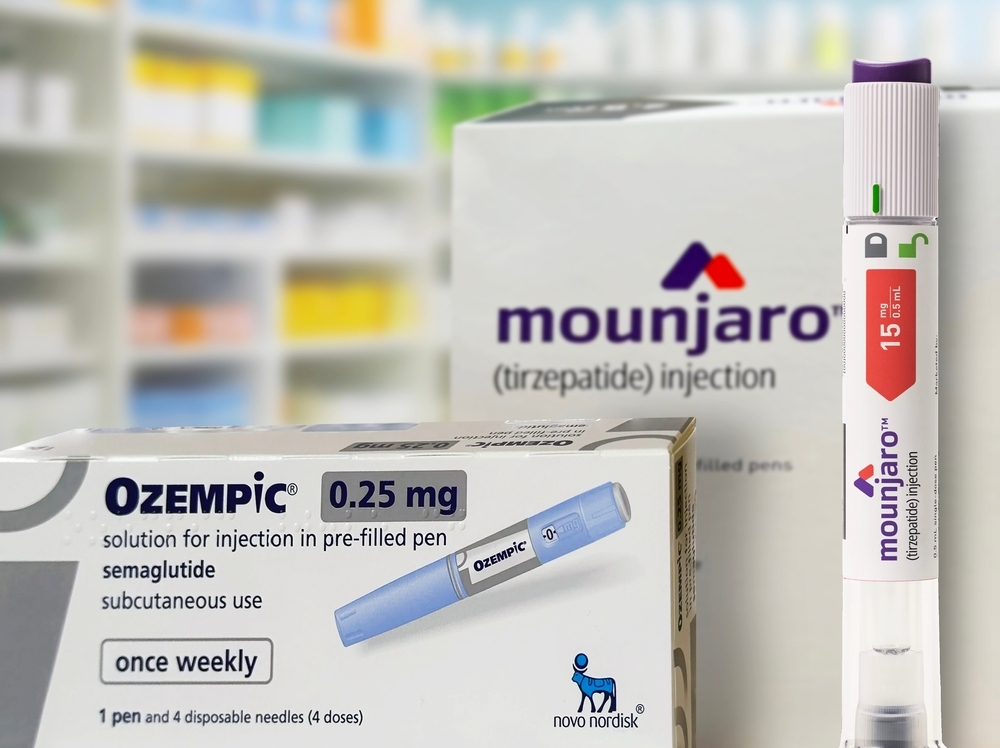
Injectable drugs like Ozempic, Wegovy, Mounjaro, and Zepbound have made headlines in recent years, not only for treating type 2 diabetes but also for aiding in weight loss. There is a lot of confusion, though, despite all the excitement. Do these medications pose no risks? Do you have to keep taking them? And what exactly is “Ozempic face”?
To answer all of your questions about Ozempic and its more recent cousins, we consulted top specialists, such as a psychiatrist, a registered dietitian-nutritionist, and a doctor who specializes in obesity medicine. Here’s the truth about these potent medications, supported by data and professional opinions.
1. How Exactly Does Ozempic Help You Lose Weight?

Ozempic (semaglutide) imitates GLP-1, a naturally occurring gut hormone. In addition to lowering the amount of sugar your liver produces and increasing insulin production, this hormone is crucial for weight loss because it prolongs and speeds up feelings of fullness. Additionally, it reduces the speed at which food passes through your stomach, preventing hunger.
Other medications, such as Zepbound and Mounjaro, take things a step further. They also mimic GIP, another hormone that regulates appetite and blood sugar in conjunction with GLP-1. That combo seems to help some people lose even more weight.
2. Who’s Seeing the Best Results?

All of these drugs have demonstrated remarkable weight loss in clinical trials. For instance, over the course of 68 weeks, Ozempic users lost almost 15% of their body weight. Similar trials have shown that tirzepatide, the active ingredient in Mounjaro and Zepbound, can cause up to 21% weight loss.
The most dramatic outcomes are typically seen by those who begin with higher starting weights and receive medication earlier. However, individual factors and adherence to medication and lifestyle modifications are key to success.
3. Is Ozempic for Everyone?

Not exactly. Ozempic should be avoided by those who have a history of kidney disease, pancreatic issues, or specific thyroid cancers. Additionally, it is not advised while pregnant. Wegovy, Mounjaro, and Zepbound are all subject to the same cautions. Before taking any of these drugs, always discuss your entire medical history with your doctor.
4. Will I Need to Take It Forever?

Most likely, yes. According to obesity medicine specialist Dr. Tiffani Bell Washington of Boston, “obesity is a chronic condition.” “Moreover, these medications only function while you are taking them.” Most of the weight lost is usually quickly regained when the medication is stopped.
However, there is no strict guideline regarding the duration of use of these drugs. Many doctors say it’s safe to continue indefinitely as long as you’re tolerating it and it’s working.
5. What’s the Catch With Fast Weight Loss?

There are trade-offs even though losing weight quickly seems ideal. Your metabolism may decrease if you lose some muscle mass. Additionally, especially in older adults, the appetite-suppressing effects may make it more difficult to obtain vital nutrients.
Cosmetic effects are also present. Rapid fat loss can result in “Ozempic butt” and “Ozempic face,” which are hollowed-out or sagging facial features. The bottom line? Where fat vanishes is beyond your control.
6. What About Side Effects?

Constipation, diarrhea, nausea, vomiting, and stomach pain are the most frequent complaints, particularly in the beginning or as dosages are increased. Fatigue and, less frequently, hair loss are other complaints made by some people.
There have been some reported serious risks, such as gastroparesis (delayed stomach emptying) or pancreatitis. Even though they are uncommon, they are worth talking about with your doctor, particularly if you have a history of gastrointestinal problems.
7. Do We Know the Long-Term Effects?

The long-term picture is unclear because these medications are still in their infancy. Thyroid tumors have been a concern in animal research, and GLP-1 medications have been connected in human studies to uncommon but dangerous gastrointestinal disorders. In 2023, the FDA issued additional cautions regarding these hazards.
However, a lot of experts think that for many patients, the advantages—like better blood sugar, a lower risk of heart disease, and noticeable weight loss—outweigh the possible drawbacks.
8. Can Ozempic Affect My Mental Health?

Mental health and obesity frequently coexist. On these medications, some people feel better, particularly if they are successful in losing weight. However, some people who take GLP-1 medications like tirzepatide and Ozempic have reported experiencing increased anxiety, depression, or even suicidal thoughts. Don’t ignore mood swings; instead, notify your doctor as soon as possible.
9. Does Insurance Cover Ozempic?

Your plan will determine this. Insurance is more likely to cover Ozempic for type 2 diabetes because it has FDA approval for that condition. However, it is not covered by many weight loss plans. Since Zepbound (the weight loss version of tirzepatide) and Wegovy (the weight loss version of semaglutide) are approved specifically for obesity, they may have a higher chance of being covered by insurance if prescribed for weight loss.
10. What If I Have to Pay Out of Pocket?

Get ready—without insurance, Ozempic costs about $968 a month. Even more expensive is Wegovy, which costs more than $1,300 a month. Zepbound and Mounjaro are in the same price range, at about $1,060 per month.
Here’s a pro tip, though: copay plans and manufacturer savings cards can lower your monthly expenses to as little as $25. Inquire about current deals with your physician or pharmacist.
11. Any Cheaper Alternatives?

Ozempic does not yet have a generic version. Although custom-mixed versions of semaglutide from specialty pharmacies may be less expensive, they are not subject to the same quality and safety standards. Experts advise using compounded versions with caution.
If Ozempic is out of your price range, discuss with your doctor other GLP-1 medications or possibly less expensive oral weight loss pills.
12. How Do You Actually Use It?

Ozempic is an injection that is administered once a week using a basic pen. It can be injected into your upper arm, thigh, or abdomen. Before being used, it should be kept in the refrigerator; after opening, it can be kept at room temperature for up to 56 days, but do not freeze it. Once you get the hang of it, the process is quick and usually painless.
13. Is Mounjaro Better Than Ozempic?

Depending on your objectives, it could be. Tirzepatide (in Mounjaro and Zepbound) had stronger effects on blood sugar and helped people lose a little more weight than Ozempic in trials.
The catch is that, at least not yet, Mounjaro is not FDA-approved for reducing cardiovascular risk in individuals with type 2 diabetes, whereas Ozempic is. That might play a significant role in selecting the appropriate drug.
14. What Happens If I Stop Taking It?

It’s likely that you will gain back some or most of the weight you lost. Within a year of stopping semaglutide, participants in one study regained two-thirds of their weight loss. For tirzepatide, it seems to be the same. Experts stress that these medications are not a “quick fix” because of this. They are a long-term tool that works best when combined with sustainable behaviors like exercise and a healthy diet.
15. Bottom Line — Should You Try It?

If you have type 2 diabetes or obesity and other treatments haven’t helped, these drugs might be the answer. However, they have costs, risks, and require constant dedication, so they are not for everyone. Speak with a medical professional who specializes in treating obesity. You can determine whether Ozempic or a comparable medication is a good fit for your long-term health objectives with the correct advice.
The way we treat obesity and diabetes is changing as a result of Ozempic and its more recent equivalents. They can be effective instruments for improved health if given professional direction and reasonable expectations. Just keep in mind that while medication may help you reach and maintain healthy habits, it cannot replace them.




